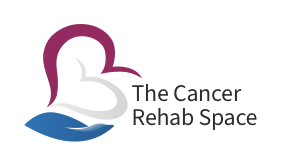In the flurry of all these decisions and emotions, very few stop to think (let alone ask) what things they may be able to do to prepare themselves for surgery. That is what this blog is all about.
1. Exercise Before Cancer Surgery
There is a lot of truth to the old saying “the better you are going in, the better you’ll be coming out,” and this is no different for undergoing cancer surgery. The challenge, however, is that there is often a very short time window between a cancer diagnosis and surgery. As a result, this isn’t the time to make big lifestyle changes, but it can be a time where you can add a few small things to your routine to physically prepare your mind and body for surgery.
Surgical scars can cause tissue tightness as they heal, so if you’re already tight in your muscles and soft-tissues, this can compound the problem after surgery. Consider adding a few key stretches every day to the body area that will be directly impacted by surgery; being a little more flexible ahead of time can really help.
Also, the science is clear that movement is medicine. Getting (or keeping) moving prior to cancer surgery can be helpful for your body but can also be a great way to “clear your mind” and manage your stress levels. The American College of Sports Medicine has a wonderful handout on how to stay active during cancer treatment. But if all this just seems too overwhelming at the moment, I encourage you to simply move more and sit less; getting out for short walks every day is a great place to start.
2. Knowledge is Power (Ask questions)
Everyone’s need for information is different; how much you want to know and when you want to know it is unique for each and every one of us. In my experience some people want to know “as much as they can” upfront, as this gives them a better sense of control by knowing what to expect. Other people, however, find a lot of information early on very stressful. First, I would suggest you reflect on which “type” of person you are and then seek out the information at the time that feels right for you.
Regardless of the timing, however, knowledge truly is power; this is the driving force behind my website, my blogs and my upcoming program (more info below). It has been my experience that arming you with accurate knowledge and information about what’s going on in your body is tremendously helpful in “keeping you in the driver’s seat of your treatment experience,” especially during a time when it can feel like you’ve lost all control.
So, with that said, I encourage you to ask your health care team questions. Using a notebook dedicated to jotting questions down as you think of them can be a very helpful way for you to remember these questions when you speak with your oncologist or other health care team member. A dedicated notebook can also be a consistent place to log answers to your questions and make other notes you have as you through treatment.
Some people also like to do their own research, and I think that’s great (maybe that’s how you found your way to my blog space!) A word of caution, however… “Dr. Google” can send you down some very dark rabbit holes! Consider starting with trusted websites like your local Cancer Society or on my website where I am continually building up my resources for you (all backed by science and years of cancer rehab clinical experience).
3. Set up Your Support Team
We can’t plan for everything but setting up what I call “your support team” ahead of time can be really helpful. Over my years working in cancer rehabilitation, many people have mentioned to me feelings of guilt over asking others for help. A helpful way to manage this is to set up your “support team” ahead of time.
Think about who you may need for help with child care, meal preparation, drives to and from hospital appointments, house cleaning, and social visits for example. Formally setting up some scheduled help ahead of time (i.e. paid help or key friends and family members) can avoid feelings of guilt associated with asking for help at the time. Also, taking the time and energy to set this up before cancer surgery (vs later on) can also be helpful since you’re likely to have more energy during this time.
4. Pack a Hospital Bag
Putting together items you may need while you’re at the hospital for cancer surgery can also be handy. Even if you’re at the hospital for day surgery, there are things you’ll want to remember to bring (you can still have some long waits at the hospital before your surgery so it’s nice to have some things to help try to distract you and pass the time.) You’ll want to think of essentials like your health/hospital/insurance cards and ID. You may also want to consider slippers or socks, a bathrobe, a book or magazine, and your cellphone and charger. If you’re undergoing breast cancer surgery, you may also want to bring a small pillow to use under your arm for the drive home.
5. Plan a follow-up with a Cancer Rehab Physiotherapist
Seeing a physiotherapist with experience in cancer rehabilitation is a proactive way to help identify problems early and receive timely access to treatment if needed. A group of research and clinical experts in breast cancer survivorship agreed that regular follow-ups for individuals diagnosed with cancer can be helpful both during and after cancer treatment (including cancer surgery). Unfortunately, however, not everyone has the access or financial means for regular follow-ups. In my experience, even just one or two appointments with a cancer rehab physiotherapist can be extremely helpful.
If, however, you are unable to find a cancer rehab physiotherapist in the city where you live, many may offer virtual sessions, which makes their services much more accessible. (Note that in Canada, virtual physiotherapy services are typically restricted to the province in which the physiotherapist is licensed.)
Want to learn more about how to plan for your cancer surgery and what you can do to help in your own recovery?
If you have been diagnosed with Breast Cancer, I am preparing to launch an online Pilot Program for Breast Cancer Surgery Recovery which includes a rich set of resources, educational talks, and an extensive post-surgery exercise recovery program. If you are interested in accessing this program, you can add yourself to the waitlist below.
Disclaimer – These blogs are for general information purposes only. Medical information changes daily, so information contained within these blogs may become outdated over time. In addition, please be aware that the information contained in these blogs is not intended as a substitute for medical advice or treatment and you should always consult a licensed health care professional for advice specific to your treatment or condition. Any reliance you place on this information is therefore strictly at your own risk.




